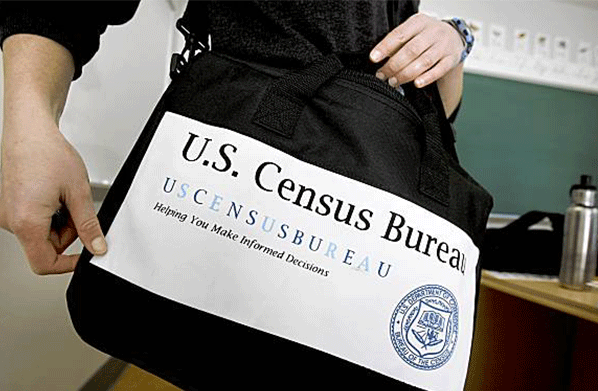The correct numbers on the effects of ObamaCare will be joining a growing list of Things We May Never Know.
Benghazi, Fast and Furious, and IRS scandal are previous entries into the We May Never Know category. But we have always assumed that we would get the correct numbers on ObamaCare because, after all, government collects a lot of data.
Suddenly, the way the Census Bureau does business has been changed and this will mask the effects of ObamaCare. Somehow this is more shocking than mere stonewalling.
The Wall Street Journal writes:
You can't manage what you don't measure, as the great Peter Drucker used to say, and for the White House that seems to be the goal. Out of the blue, the Census Bureau has changed how it counts health insurance—at the precise moment when ObamaCare is roiling the insurance markets.
Since 1987, the Current Population Survey, or CPS, has collected information on the health-insurance coverage status of Americans. The annual reports are widely cited because their large sample sizes improve accuracy, the data are gathered constantly, and they tease out state-by-state details. But this year the Census revamped the CPS household insurance questions, muddying comparisons between the pre- and post-ObamaCare numbers. The results of the new method will be disclosed this fall.
The FDA would never approve a new drug whose maker completely changed the clinical trial protocol in the middle of the experiment, yet that is what the White House has done. How many people gained or lost insurance under ObamaCare? Did government crowd out individual insurance? What about employer-sponsored insurance? It will be much harder and in some cases impossible to know.
A change in the way the Census asks questions reportedly has been in the offing for some time, and it is claimed that the new method will be more accurate. It just won’t be accurate when it comes to providing information on which to assess ObamaCare, one of the most radical changes in our nation’s history. When procedural changes of the sort the Census Bureau is making occur, it is usual to ask the old questions alongside the new ones so that there will be a basis of comparison with the data collected in previous years.
Peter Suderman of Reason writes:
Now, to be clear, the change will give us one year of pre-expansion data: The new measurement methodology will start with 2013, which means we’ll be able to compare last year's insurance pre-coverage-expansion stats with this year's. That will give us some sense of the changes under the Affordable Care Act. But there are still big problems with the timing of the transition. As Aaron Carroll notes, it still destroys the long-term trendline. The trend info would have had a lot of value generally, and also would have set the 2013 results in a helpful context. Now it's going to be difficult to discern the impact of the upheavals that we saw in the health insurance market in 2013, which featured, among other things, large unexplained spikes in coverage, and the cancellation of millions of individual insurance policies.
This is infuriating and unfortunate. Ignore, for a moment, how politically convenient it is. It's just poor social measurement.
If the interest is in getting the best and most useful data possible, then we should want a time series without breaks or alterations, one that can be used to reliably compare the years before and after the single largest and most controversial policy change intended to affect the provision of health insurance in the last four decades. One might think that creating a consistent measure for this effect would be a priority for people whose job is to create socially useful guides to the makeup of the nation's population. Apparently not.
No doubt the demonization of people who are concerned about this is imminent. A harbinger of what to expect was already present in a Huffington Post report:
Republicans quickly took to Twitter to express alarm, and hint at conspiracies.
I hope you won’t think I am wearing a tinfoil hat if I call your attention to a story in the New York Post by John Crudele, who suggests that job numbers were misleading in the lead-up to the 2012 presidential election. Folks, if we can no longer depend on numbers from the government, we are well along the road to banana republic territory.


